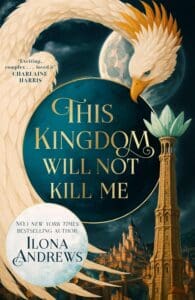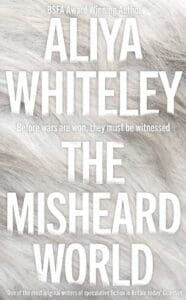
Synopsis
In a lonely cottage overlooking the windswept Maine coast, Wilder Harlow begins the last book he will ever write. It is the story of his childhood summer companions and the killer that stalked the small New England town. Of the body they found, and the horror of that discovery echoing down the decades. And of Sky, Wilder’s one-time best friend, who stole his unfinished memoir and turned it into a lurid bestselling novel, Looking Glass Sound.
But as Wilder writes, the lines between memory and fiction blur. He fears he’s losing his grip on reality when he finds notes hidden around the cottage written in Sky’s signature green ink.
Review
In Peter Straub’s masterwork, the Blue Rose Trilogy, he does something truly remarkable. In Koko, he tells a brilliant, haunting horror story. Then, in the second book, Mystery, he sets the story in an earlier time frame and a completely different setting, though certain elements remain, shifting ghostlike through the narrative in a strange, ghostly remix. And then, in The Throat, we learn that the earlier books are both novels set within the fictional world of this last book, the narrator their author, and we see the ways in which both of the earlier books were simply different attempts at circling around the story he is finally ready to tell. It is a tour de force of metafictional horror, demonstrating both Straub’s mastery but also the pliability of the form, the way that the same story can be refracted and reframed endlessly, always creating something new, and sometimes something deeper.
In Looking Glass Sound, Catriona Ward takes up a project that is eerily similar, but infinitely more condensed, more shocking in its constant turning in on itself, and finally more poignant in what it says about story, character, and the relationship between reader and text. In a year when horror writers have been consistently putting out their strongest work, Ward delivers a book that stands out as a genuine accomplishment.
The novel focuses on a summer in the early Nineties, as teenager Wilder Harlow visits Whistler Bay with his family, determined to fall in love. He meets Nat and Harper, and they begin a coming of age narrative that is cut short by the discovery and arrest of a serial killer in their midst and grisly remains of women’s bodies in the bay.
The less said beyond this summary, which could just as well be book jacket copy, the better. What is important is that this event is the catalyst for an exercise in storytelling that is endlessly generative. It is told, retold, with characters shifting and changing names and time lopping and doubling back on itself so many times that the reader is left in a state in which questions such as “What is true?” or “Which is the real story?” are not so much abandoned as made generative.
If any of this sounds tedious, it is not. Ward’s prose has never been as controlled or razor sharp, and the reader feels, always, as if they are in such sure hands, even as everything else is so slippery and protean, that each new turn feels something like the revelation at the end of a mystery, though it is actually just another passageway into the story.
In the end, Looking Glass Sound is a love letter to Story itself, its possibilities, and the relationship between text and reader. It’s tragic, yes, but also hopeful in its insistent belief in magic and love. Haunting and haunted, it’s a masterpiece of a book.








Leave a Reply